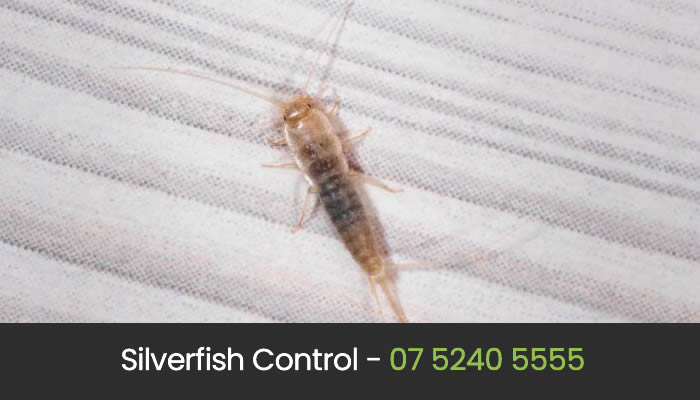Silverfish Control Gold Coast
Effective Silverfish Pest Control Treatment
Worried about silverfish in your Gold Coast home? Let us help you get rid of silverfish and keep them away for good!
Silverfish infestations can quickly escalate if left unchecked. They love dark, damp areas of your home, like basements and attics. Silverfish damage paper materials, contaminate food sources, and even bite humans. Getting rid of silverfish is essential to protecting your home or business.
The good news is that Eco Pest Control Gold Coast has been providing effective silverfish treatments on the Gold Coast for over 10 years. We use IPM techniques to fully eliminate silverfish infestations. We also use eco-friendly methods that are safe for your family and pets.
We are committed to 100% customer satisfaction and will eliminate your silverfish issue quickly and efficiently.
Don’t live with a silverfish infestation another day! Contact us to book your inspection and treatment today!
Get a FREE quote today! Our friendly team is ready to help 24/7.
What are Silverfish?
Silverfish are small, wingless insects that get their name from their silvery, fish-like appearance. The two most common species in Australia are the Common silverfish and the Australian silverfish. They have long antennae and three tails, and can live for 2-8 years. They have been around for over 400 million years.
The Risks of Silverfish
Silverfish can pose health risks and damage your home and belongings. They feed on starchy materials like paper, photos, books, carpet, glue, wallpaper, clothing and more. Their feeding can ruin these items over time. Silverfish can also contaminate food sources.
Signs of Infestation
- Seeing live silverfish crawling around
- Tiny yellow stains from their acidic excrement
- Irregular holes chewed through items
- Damaged books, photos, wallpaper and dry goods
How to Control and Prevent Silverfish
- Reduce humidity levels below 50%
- Eliminate water leaks and sources of moisture
- Store foods like flour, cereals, and sugar in sealed containers
- Use dehumidifiers and improve ventilation
- Apply desiccant dusts in wall voids and other hiding spots
- Prune plants near home exterior
- Keep areas dry and vacuum regularly
What to Do If You Have a Problem
If you suspect or confirm an infestation, call Eco Pest Control Gold Coast at 07 5240 5555 to schedule an inspection.
We will inspect and determine the extent of the issue and advise on the best treatment plan.
Fast action helps eliminate silverfish.
Our Silverfish Control Services
- Inspection to locate infestations
- Strategic insecticide dusting and spraying
- Follow up treatments to kill hatchlings
- Advice on proofing your property
- Written report with photos
- Crack and crevice sealing
- Eco-friendly treatments
Why Choose Us
- 10 years experience
- Licensed and insured
- Offer warranties on work
- Modern treatment methods
- Family and pet safe treatments
- Affordable pricing
- Available for emergencies
- Flexible booking times
- 100% satisfaction guarantee
- Affordable pricing
- FREE quotes
Our Locations
We provide silverfish control in these Gold Coast suburbs and more:
- Surfers Paradise
- Broadbeach
- Burleigh Heads
- Coolangatta
- Varsity Lakes
- Robina
- Mermaid Beach
- Miami
- Palm Beach
Contact Us
Don’t wait, get rid of silverfish today! Contact Eco Pest Control Gold Coast at 07 5240 5555 or visit our contact page to schedule service.
Our friendly team is ready to help with your silverfish problem




